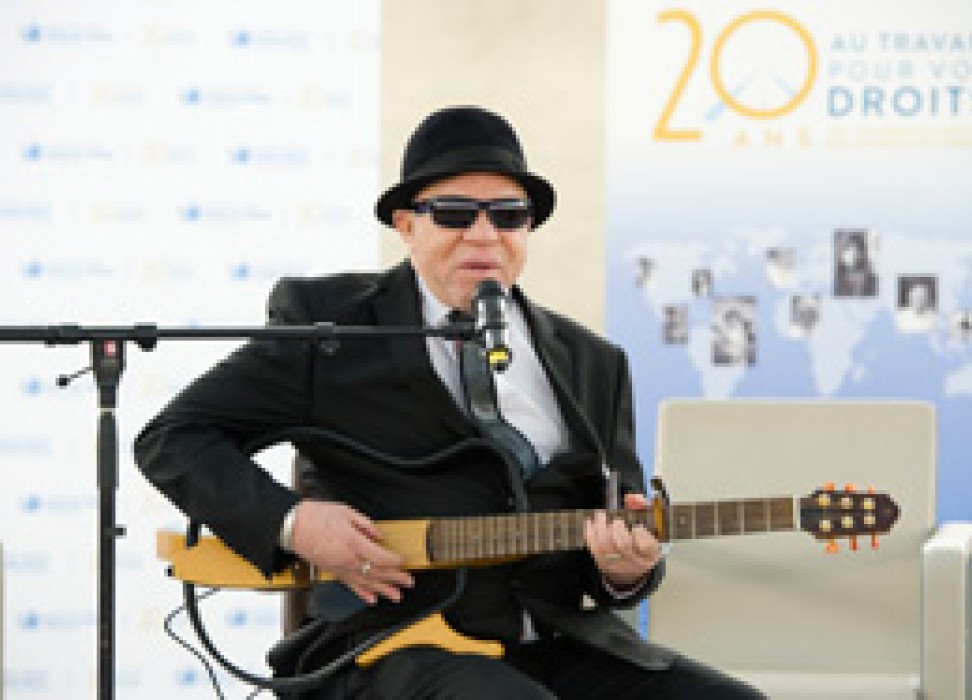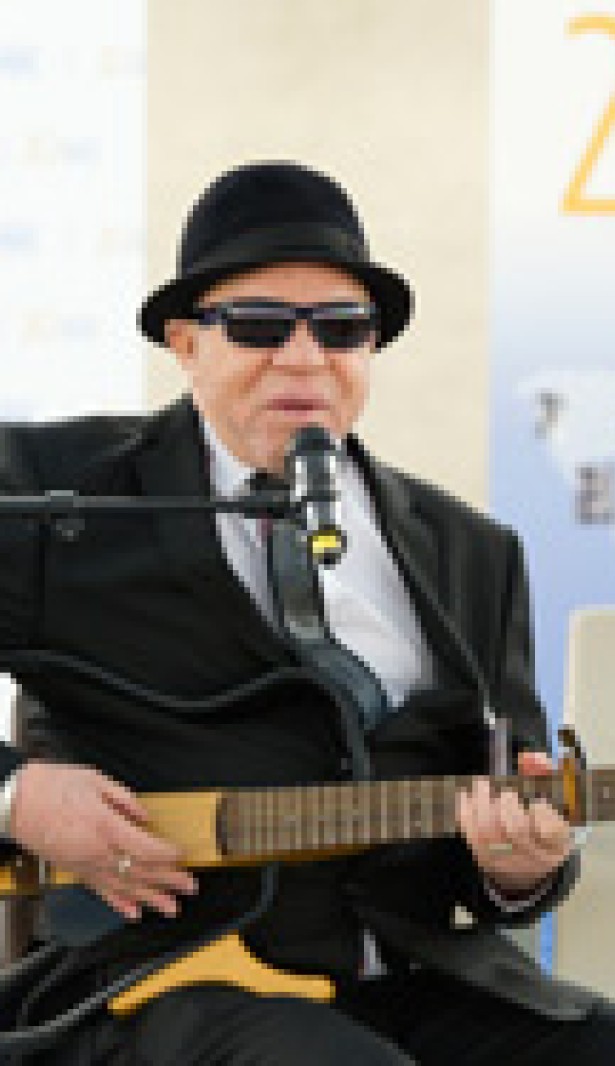Human Rights: a look at the next 20 years
10 December 2013

“A huge amount of work remains to be done to transform human rights from abstract promises to genuine improvement in the daily lives of all people, especially those who are currently marginalized or excluded,” said UN Human Rights Chief Navi Pillay in her opening remarks during a special day-long event commemorating Human Rights Day.
“Women continue to suffer discrimination, violence and persecution,” Pillay said. “So too do ethnic, racial and religious minorities, and migrants, as well as individuals because of their sexual orientation and gender identity. This shows how far we still have to go.”
Every year on 10 December, Human Rights Day commemorates the adoption of the Universal Declaration of Human Rights. This year’s event, held on 5 December at the Palais des Nations in Geneva, Switzerland, celebrated the 20th anniversary of the UN Human Rights Office and the adoption of the Vienna Declaration and Programme of Action.
In order to create a vision for the future, Pillay said, the evolving role of information technology must be noted in improving real-time communications and information sharing. “They are also magnifying the voice of human rights defenders, shining a light on abuses and mobilising support for various causes in many parts of the world,” she said. “Of course we have also seen how new technologies are facilitating the violation of human rights, with chilling 21st century efficiency. A Tweet or a Facebook post by a human rights defender can be enough to land him or her in jail.”
Remigiusz Achilles Henczel, President of the Human Rights Council and Permanent Representative of Poland to the UN Office at Geneva, paid tribute to the efforts of human rights defenders who risk their lives speaking out against human rights abuses and injustices. “In the years to come, it is of utmost importance to preserve a safe space for the participation of civil society both at national and international level,” he said.
The UN community, civil society organizations, and local students attended a series of interactive discussions covering a variety of human rights issues. The discussions were moderated by world renowned journalists Ghida Fakhry Khane and Tim Sebastian.
Salif Keïta, the golden voice of Africa, a musician and advocate for the rights of people with albinism, also performed throughout the day. The event was also an opportunity to show the new promotional video that looked back at the human rights successes and failures over the past 20 years. The video included, among others, actress Salma Hayek, professional footballer Kevin-Prince Boateng, and education activist Malala Yousafzai, who has just been awarded the 2013 UN Human Rights Prize.
The first conversation focused on the importance of protecting the space for human rights defenders. “In several instances where deplorable, large-scale violations of international human rights law were occurring, the international community was too slow, too divided, too short-sighted—or just plain inadequate in its response to the warnings of human rights defenders and the cries of victims,” Pillay said in her opening statement.
During the discussion, which included Hina Jilani, former Special Representative of the Secretary-General on Human Rights Defenders and Roselyn Hanzi, a lawyer from Zimbabwe, Jilani said that protecting human rights defenders, including journalists, is one of the most difficult challenges that the human rights community faces and this protection must be offered to those who defend human rights.
In Bridging the equality gap: Including the excluded in economic and political life, the panelists, which included Rita Izsák, UN Independent Expert on minority issues, Chief Wilton Littlechild, lawyer and advocate for Indigenous Peoples, and Martha Piedad Mosquera Figueroa, a 2013 fellow of the UN Human Rights Office Minorities Fellowship Programme, highlighted the significant progress made to further advance the rights of minorities and indigenous peoples. However, more change and work is required. “Our biggest enemy is silence,” Izsák said. “We need to take action to overcome.”
In Building a World Wide Human Rights Web: human rights and the free flow of information, Sir Tim Berners-Lee, the inventor of the World Wide Web, and Pillay deliberated over human rights and the Internet, as well as the relevant topics of Internet privacy and government surveillance. Pillay stressed that people are concerned with mass surveillance and the lack of transparency by Governments. Berners-Lee said that he envisions a Web that is equally accessible and non-discriminatory. Mobile technology, as Berners-Lee explained, will be part of bridging the digital divide.
The final conversation, Building a vision for an effective human rights system: the next two decades and beyond, covered a variety of issues including the crucial need to continue implementing the existing human rights framework, and utilizing digital technology and the arts as a way of reaching young people and inspiring action.
“We have come a long way over the last 20 years since Vienna. Human rights is the idea of our time. The very essence of human rights is the equal dignity for everyone,” said Christof Heyns, Special Rapporteur on extrajudicial, summary or arbitrary executions. Other participants in this panel included Zied Mhirsi, co-founder of Tunisia Live, and Deeyah Khan, a music producer, composer, award-winning documentary film director and human rights activist.
10 December 2013

